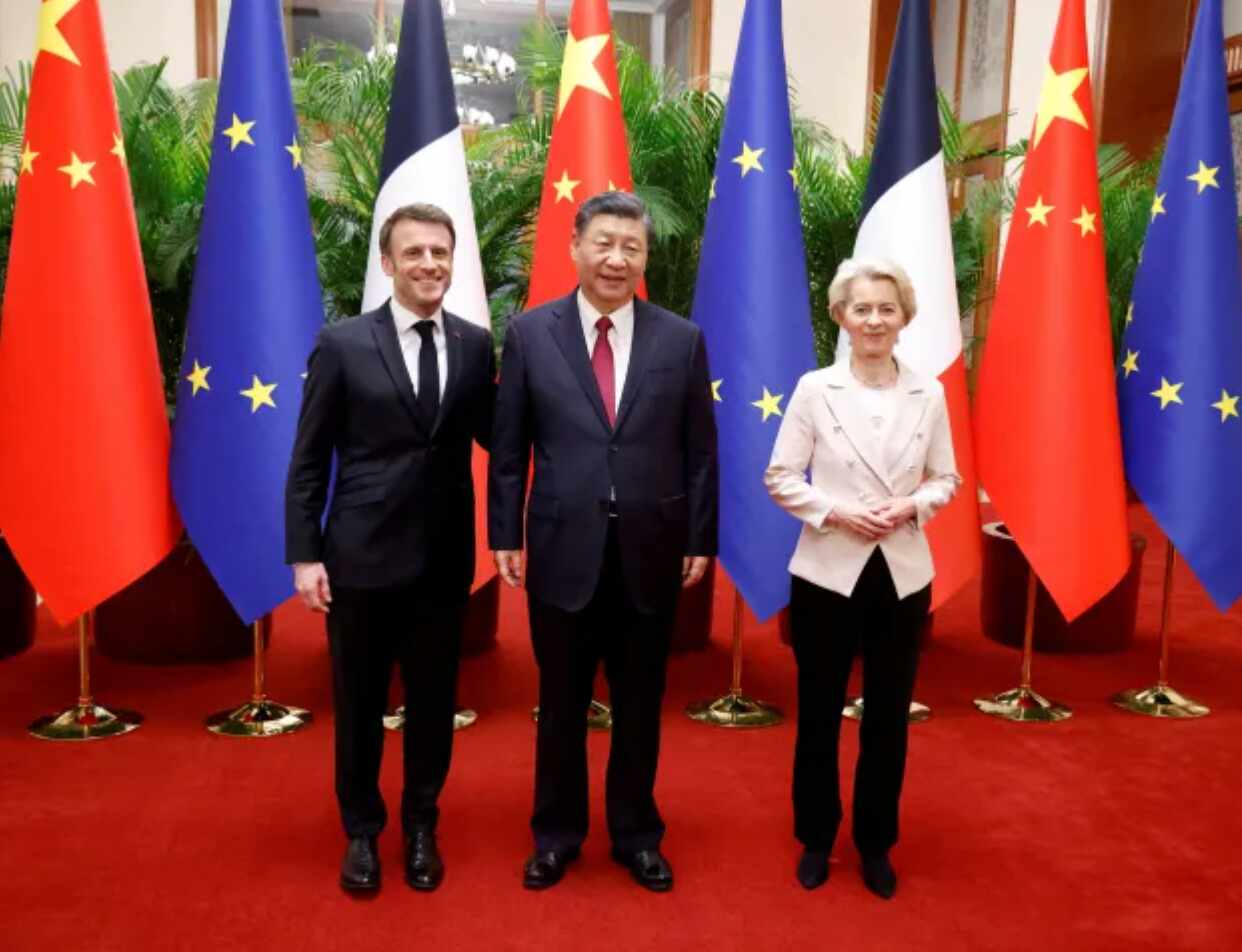Unanimity Elusive: European Union Struggles to Reach Consensus on China Strategy
This week's two-day EU summit in Brussels is poised to be a pivotal moment in the bloc's foreign policy. EU leaders will discuss their strategy towards China, including their plans for de-risking relations with Beijing. The EU's stance towards China has hardened over the past few years due to a variety of factors, such as differences over the handling of the coronavirus pandemic, the rise of China as a tech and economic power, Beijing's military actions in the Taiwan Strait and the country's lack of condemnation of Russia's war in Ukraine.
This week's two-day EU summit in Brussels is poised to be a pivotal moment in the bloc's foreign policy. EU leaders will discuss their strategy towards China, including their plans for de-risking relations with Beijing. The EU's stance towards China has hardened over the past few years due to a variety of factors, such as differences over the handling of the coronavirus pandemic, the rise of China as a tech and economic power, Beijing's military actions in the Taiwan Strait and the country's lack of condemnation of Russia's war in Ukraine. EU Commission President Ursula von der Leyen said before a trip to Beijing in March that the bloc should focus on de-risking with China, rather than de-coupling. Last week, the EU imposed sanctions on Chinese entities that are allegedly supporting Russia's military and industrial complex in Ukraine, while China responded with sanctions on EU entities.
In February, the EU also decided to relaunch its dialogue over human rights with China, two years after talks had stalled due to tit-for-tat sanctions. Rights groups have voiced their criticism, saying that discussing human rights with Beijing is meaningless. Individual member nations of the bloc have continued to prioritise their individual national security interests, such as the Baltic nations and Poland who have been particularly frustrated with China over its renewed partnership with Russia. Meanwhile, Western European nations, such as Germany and France, have pushed to tone down the bloc's harsh rhetoric towards Beijing over Taiwan, hoping to maintain and boost trade and business relations with China. EU foreign policy chief Josep Borrell said this week that the EU must prepare for all scenarios and engage with China “in maintaining the status quo and work to de-escalate tensions”.
He also said that the EU must have a real debate on de-risking and de-coupling, and that it is member states that decide. A draft of the EU Council conclusion suggests that EU leaders are expected to say that the bloc “does not intend to decouple or to turn inwards”. Mathieu Duchâtel, resident senior fellow and director of international studies at Institut Montaigne in Paris, said that de-risking is the consensual conclusion and that the transatlantic partnership with the US could weigh in as a “structural determinant of European foreign policy”. Ultimately, policy divergences are likely to continue between EU member states, especially concerning Taiwan. The EU summit this week is set to be an important moment in the bloc's foreign policy as they discuss their strategy towards China.




